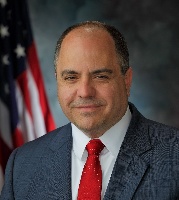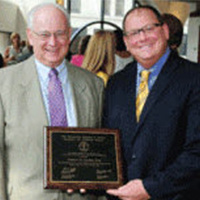Pike Juvenile Law Lawyer, New York
Sponsored Law Firm
-
 x
x

Click For More Info:
-
Law Office of Mark S. Guralnick
55 Madison Avenue 4th Floor Morristown, NJ 07960» view mapCriminal Defense Law Dedicated. Fearless. Successful.
Mark S. Guralnick and his legal team have helped clients throughout the USA and across the world by applying unparalleled dedication and hard work to each case.
800-399-8371
Not enough matches for Pike Juvenile Law lawyer.
Below are all Pike Criminal lawyers.
Raymond Paul Sciarrino
✓ VERIFIEDSciarrino & Sciarrino, P.C. is a criminal law firm serving Rochester and the surrounding areas of Livingston County and Wyoming County. For more than ... (more)
Susan Kathleen Duke
✓ VERIFIEDI consider communication to be a key aspect of the lawyer-client relationship, which is why I return phone calls and emails promptly. My clients have ... (more)
Anthony M. Bruce
✓ VERIFIEDMr. Bruce’s legal career has focused on criminal litigation. For 37 years, Mr. Bruce worked as Assistant United States Attorney in the United State... (more)
Dominic Paul Candino
✓ VERIFIEDPersonal injury and criminal law is a complex collection of ever-changing legislation and case law. Many of those injured by a third party's negligen... (more)
Karl Martin Myles
✓ VERIFIEDMy Web designer told me that I had to provide him with more information on myself to explain to people better who I am. Specifically he said for me to... (more)
Derek Akiwumi
✓ VERIFIEDDerek Akiwumi, representing clients throughout WNY, has a proven reputation for getting the results you need. From criminal defense, appeals, and pers... (more)
Paul Becker
✓ VERIFIEDPaul B. Becker, Esq. is committed to providing you with top notch legal services. I approach every client with a focus on integrity, advocacy, and und... (more)
Gregory A. Franklin
✓ VERIFIEDAn adoptive parent himself, Gregory Franklin has experienced first-hand the challenges and joys of adopting a child. Adoptions involve a highly emotio... (more)
Bernard D. Levine
✓ VERIFIEDBernard D. Levine is a practicing lawyer in the state of New York.
 Mark Guralnick Morristown, NJ
Mark Guralnick Morristown, NJ AboutLaw Office of Mark S. Guralnick
AboutLaw Office of Mark S. Guralnick Practice AreasExpertise
Practice AreasExpertise









